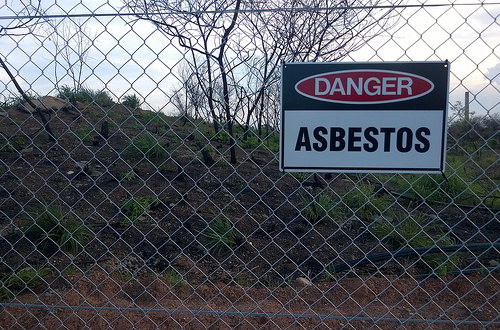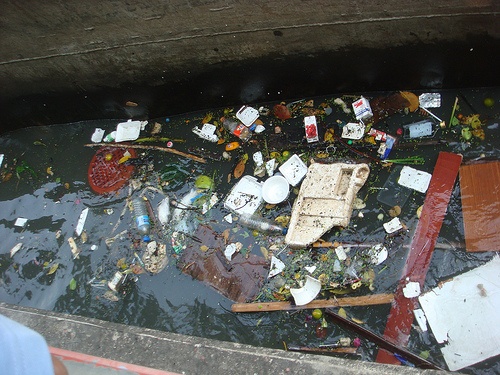One of California’s longstanding amplifications of national environmental health and safety (EH&S) programs is provided by “Proposition 65.” I summarized these provisions here. As I described, the main thrust of this 1986 state enactment is to provide warnings about potentially hazardous chemicals, to customers, workers, and other “potentially exposed individuals." Prop 65 provides sample texts for warnings, including “safe harbor” text for product labels and in-store signage. After 30 years, the state is revising these safe harbors to be more informative. Revised safe harbor text became available for use August 30, 2016 and replace their expiring predecessors on August 30, 2018. Since we’re half way through this two year transition, it’s a good time to review.
Read MoreAudit, Compliance and Risk Blog
Tags: Health & Safety, OSHA, California Legislation, Environmental risks, Environmental, Hazcom
Although environmental health and safety (EH&S) regulations focus primarily on safe handling of materials and wastes during routine operations, reports following hurricanes Harvey and Irma, and the major earthquake in Mexico, should remind us to plan to prevent releases from non-routine situations, up to an including natural disasters. Press reports include the following:
Read MoreThe presence of “hazardous” materials in your workplace can trigger a wide variety of environmental health and safety requirements. The Occupational Safety and Health Administration (OSHA) and state worker protection agencies issue standards to protect workers during occupational handling and storage. The US Environmental Protection Agency (EPA) and state environmental agencies issue requirements governing the management of hazardous wastes, and emissions to a variety of environmental media (air, water and land).
Read MoreTags: OSHA, Environmental risks, Environmental, EPA
US Department of Justice Reining in Supplemental Environmental Projects
Posted by Jon Elliott on Tue, Sep 05, 2017
For many years, federal and state environmental enforcement agencies have been willing to negotiate settlements in which defendants agree to conduct “supplemental environmental projects (SEPs)” as a way to reduce formal penalties for the noncompliance that led the agency investigation and enforcement. Proponents see SEPs as a way to promote environmental and health values by encouraging defendants to undertake projects that wouldn’t occur otherwise in order to reduce or eliminate civil and/or criminal liability. Opponents see them as rogue efforts in which prosecutors substitute their own judgment for the statutory and regulatory directives that are supposed to guide their actions.
Read MoreTags: Environmental risks, Environmental, EPA
What’s In Your Janitor’s Closet? New York Seeks More Information
Posted by Jon Elliott on Tue, Aug 22, 2017
Even workplaces with very limited chemical use probably use cleaning supplies. If these supplies are bought in typical retail packaging intended for consumer use, the employer and employees may lack ready access to chemical content information beyond that on the labels. That’s because the Hazard Communication Standard (Hazcom) administered by the U.S. Occupational Safety and Health Administration (OSHA) exempts consumer products in their final form for consumer use, unless worker use is greater than that by typical consumers.
Read MoreTags: Health & Safety, OSHA, California Legislation, Environmental risks, Environmental, EHS, Hazcom
California Extends and Amends its Greenhouse Gas Cap-and-Trade Program
Posted by Jon Elliott on Tue, Aug 08, 2017
Since 2012, California has administered a “cap-and-trade” program, setting total greenhouse gas (GHG) emission limits from selected major emitting sectors and creating tradeable emission permits and offsets to provide flexibility and encourage innovation. The program was created under authority of the state’s 2006 “AB 32” legislation, which focuses on reducing statewide GHG emissions by 2020. This authority would have expired in 2020, but new legislation extends the program until 2030. In order to secure enough votes for the extension, legislative leaders and Governor Brown agreed to statutory changes in this program and related air quality programs.
Read MoreTags: California Legislation, Environmental risks, Environmental, Greenhouse Gas, ghg, cap-and-trade
One of California’s many unique environmental, health and safety (EH&S) laws is its “Corporate Criminal Liability Act (CCLA).” CCLA provides greatly expanded potential personal criminal liabilities for violations by managers, so is often referred to as the “Be a Manager, Go to Jail” law. Enacted in 1990, CCLA draws both from occupational safety and product liability laws, to provide sweeping requirements for corporations and managers to abate or warn exposed individuals (including employees) about a broad variety of serious concealed dangers occurring in a broad variety of circumstances, including both workplaces and products. Although this law has been used by prosecutors and advocates to strike fear into the hearts of corporate managers, there have been few reported cases in its nearly three decades on the books.
Read MoreTags: Health & Safety, OSHA, California Legislation, Environmental risks, Environmental
EPA and the Corps of Engineers Propose to Turn Back the Clock on “Waters of the United States”
Posted by Jon Elliott on Tue, Jul 11, 2017
On June 27, 2017 the Environmental Protection Agency (EPA) and the U.S. Army Corps of Engineers (Corps) jointly proposed to revise their regulatory definitions of “waters of the United States”, applying authority under the Clean Water Act (CWA). Their proposals would rescind expansive versions adopted in June 2015, during the Obama Administration, and reinstate the text of the definitions in place until 2015. These actions represent the latest chapter in a saga dating back to United States Supreme Court decisions in 2001 and 2006 overturning decades-long understandings of which waters CWA empowers the agencies to regulate. (I wrote about this history in a blog about the 2015 rules here).
Read MoreTags: Environmental risks, Environmental, EPA, Stormwater, clean water
On May 23, the Trump Administration issued its budget proposal for federal Fiscal Year (FY) 2018 (October 1, 2017 through September 30, 2018), subtitled “A New Foundation for America’s Greatness”. The proposal includes a 31% cut in the Environmental Protection Agency (EPA) budget, from $8.2 billion in FY 2016 (stable in FY 2017 under a Continuing Budget Resolution rather than a fully-new federal budget), to $5.7 billion for FY 2018, with corresponding personnel cuts from 15,376 full-time-equivalent employees (FTE) to 11,611. Although presidents’ annual budget proposals are rarely enacted in full, they do mark the formal start of annual considerations of federal policies and staffing. It’s therefore useful to review how President Trump and EPA Administrator Pruitt hope to proceed.
Read MoreTags: Environmental risks, Environmental, EPA, climate change
What Will U.S. Withdrawal From Paris Accord Mean For Climate Change?
Posted by Jon Elliott on Tue, Jun 20, 2017
On June 1, President Trump announced that the United States will withdraw from the Paris Accord on climate change, and then seek to “begin negotiations to reenter either the Paris Accord or a really entirely new transaction on terms that are fair to the United States, its businesses, its workers, its people, its taxpayers.” Most of the strong reactions I’ve seen – pro and con – express only superficial approaches to the implications of the decision. In this note I’ll dig a little deeper, and propose two different less-superficial ways to watch these implications play out.
Read MoreTags: Environmental risks, Environmental, EPA, climate change










